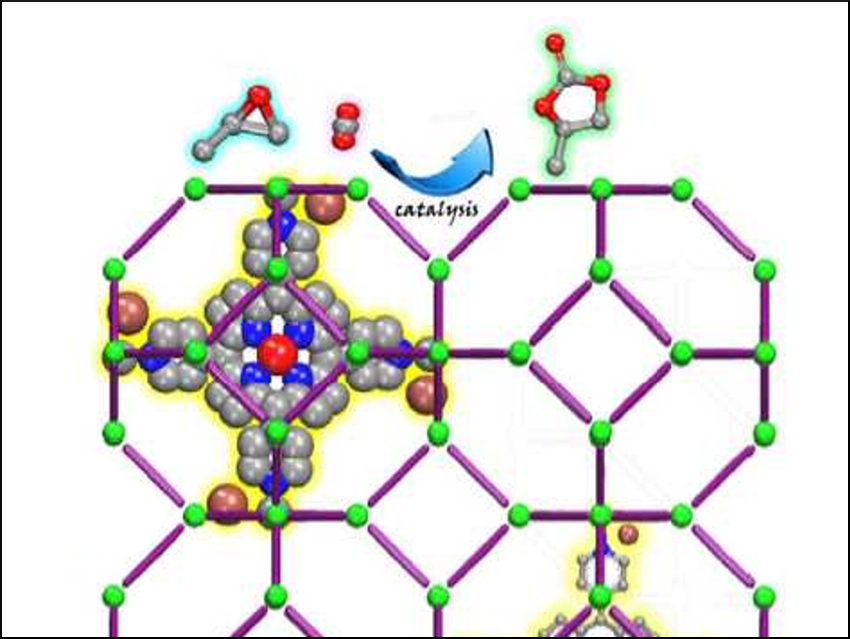Integrating multiple reactive sites into a composite material with a confined nanospace could allow researchers to build nanoreactors that catalyze reactions. However, this can be challenging.
Cheng-Peng Li, Miao Du, Tianjin Normal University, China, and colleagues have synthesized a composite material by the encapsulation of an ionic manganese metalloporphyrin into a porous zeolitic imidazolate framework (ZIF-8). The hybrid catalyst was formed by introducing the porphyrin during the synthesis of ZIF‐8 in dimethylformamide (DMF) at 140 °C. The resulting composite can serve as a heterogeneous catalyst for the solvent-free synthesis of cyclic carbonates from CO2 and epoxides without any co-catalyst.
The catalytic performance for the chemical transformation of CO2 is enhanced by the confinement of the ionic metalloporphyrin in the structure’s cavities (pictured). The composite material is stable and can be easily separated and reused with minimal loss of catalytic performance.
- Encapsulation of an Ionic Metalloporphyrin into a Zeolite Imidazolate Framework in situ for CO2 Chemical Transformation via Host–Guest Synergistic Catalysis,
Hongming He, Qian-Qian Zhu, Chuanqi Zhang, Ying Yan, Jing Yuan, Jing Chen, Cheng-Peng Li, Miao Du,
Chem. Asian J. 2019.
https://doi.org/10.1002/asia.201900021




